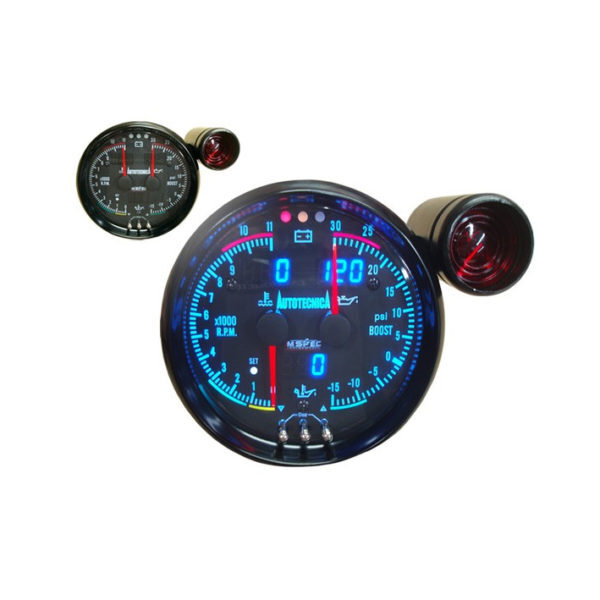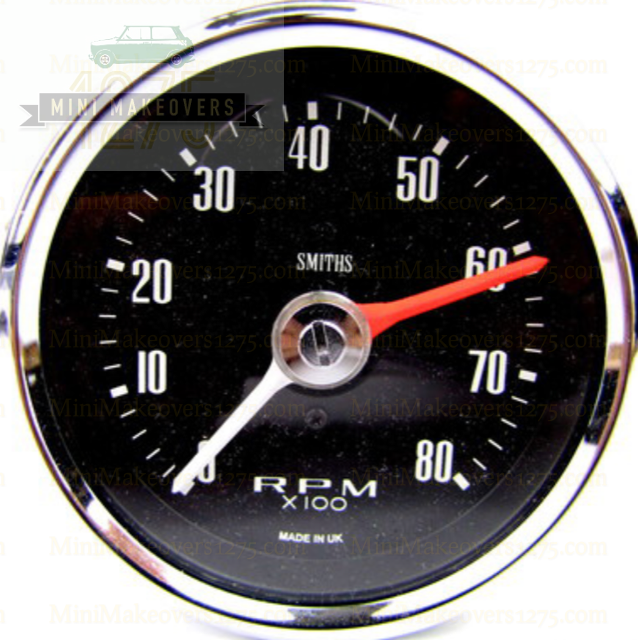Unlocking the Secrets of Tachometers: Every Little Thing You Need to Know About This Important Instrument in Your Lorry
Recognizing the details of tachometers can supply useful understandings into your vehicle's performance and maintenance requirements. From gauging engine rate to understanding the data it provides, tachometers act as a vital tool for car owners and lovers alike. By unraveling the enigmas behind this vital tool, you can unlock a wide range of information that can boost your driving experience and guarantee the longevity of your lorry.
Value of Tachometers
The value of tachometers hinges on their ability to give important real-time data regarding an engine's rotational rate, permitting for specific tracking and maintenance of machinery. By gauging the changes per min (RPM) of an engine's crankshaft, tachometers use beneficial understandings into the engine's efficiency - tachometer. This data is important for making certain that the engine runs within its ideal array, avoiding possible damages from over-revving or underperforming
Tachometers play a vital function in helping drivers and technicians detect any type of abnormalities in the engine's speed, which might suggest problems such as fuel inadequacy, mechanical troubles, or excessive strain on the engine. By quickly identifying these issues with tachometer readings, maintenance can be done proactively, stopping costly repair services and downtime in the long run.
Moreover, tachometers are particularly crucial in high-performance automobiles and machinery, where exact control over engine rate is required for ideal procedure. Racing vehicles, airplane, and commercial tools rely upon tachometers to provide peak efficiency while maintaining security requirements. Essentially, tachometers are not simply instruments for measuring speed yet important devices for ensuring the smooth and reliable operation of engines across various applications.
Just How Tachometers Action Engine Speed
Utilizing sensing units that find the regularity of electric pulses produced by the engine's ignition system, tachometers accurately gauge the rotational speed of an engine. By keeping an eye on the price at which these pulses are received, tachometers supply real-time feedback on just how fast the engine's crankshaft is rotating per minute, commonly referred to as changes per minute (RPM)
The tachometer's sensing unit, usually linked to the engine's ignition coil or spark plug cords, gets the electrical signals created each time a cyndrical tube fires. These signals are after that exchanged RPM readings showed on the scale or instrument cluster within the chauffeur's view. Tachometers can be analog or electronic, with modern cars generally including electronic displays for accurate and immediate RPM readings.
This information is critical for motorists to comprehend the engine's performance, stop over-revving, enhance gear changing, and ensure reliable gas usage. By properly gauging engine speed, tachometers play a vital duty in helping drivers run their cars securely and effectively.
Analyzing Tachometer Readings
Having a clear understanding of how tachometers determine engine speed sets the foundation for successfully interpreting the RPM analyses presented. Analyzing tachometer readings is essential for ideal vehicle performance and engine wellness. RPM (Revolutions Per Min) readings on the tachometer show the speed at which the engine's crankshaft is turning. When the engine is idling, the tachometer needle typically relaxes around 600-1000 RPM, depending upon the lorry. As you increase, the RPM will certainly raise, showing the engine's higher rotational rate. When shifting gears in a hand-operated transmission vehicle, the RPM will certainly drop as you engage the clutch and change equipments, then rise once more as you speed up in the new equipment. Keeping an eye on the tachometer can aid you establish the most efficient moving points to make best use of fuel economic climate and engine power. Additionally, irregular variations or regularly high RPM readings might indicate prospective concerns with the engine that may require specialist attention. By focusing on the tachometer readings and comprehending just how to analyze them, you can guarantee your car operates efficiently and efficiently.


Tips for Using Tachometers Effectively
To boost driving performance and maximize engine efficiency, what trick techniques can link be executed for properly using tachometers? Tachometers are important devices that offer real-time responses on engine rate, making it possible for drivers to make informed decisions for far better efficiency - tachometer. Right here are some tips for using tachometers successfully:
Comprehending Ideal RPM Array: Familiarize on your own with the optimal RPM (Transformations Per Minute) variety for your automobile. Keeping the engine within this range can enhance gas performance and prolong the engine's lifespan.
Moving Equipments at the Correct Time: Utilize the tachometer to establish the very best time to shift equipments. Upshifting prematurely or far too late can lead to reduced efficiency and efficiency. Aim to change equipments when the RPM gets to the ideal range for the following gear.
Monitoring Engine Tension: High RPMs for prolonged durations can stress the engine. Keep an eye on the tachometer to avoid over-revving, especially during velocity or when bring hefty loads.
Tachometers and Vehicle Maintenance
When taking into consideration automobile maintenance, tachometers play a crucial duty in keeping track of engine efficiency and identifying prospective concerns. Tachometers supply essential data on engine speed, allowing drivers and mechanics to ensure that the engine is you could check here operating within the suggested RPM variety. Routinely checking the tachometer analyses can help determine issues such as engine misfires, damaged ignition system, or concerns with the fuel distribution system. By taking notice of the tachometer, motorists can prevent excessive stress on the engine, which can cause expensive repair work down the line.
In enhancement to finding prospective problems, tachometers can likewise help in maximizing fuel efficiency. By maintaining the engine speed within the ideal array, chauffeurs can improve their gas mileage and reduce fuel consumption. This not just benefits the chauffeur's pocketbook however also adds to environmental preservation by lowering unsafe discharges.
Conclusion
